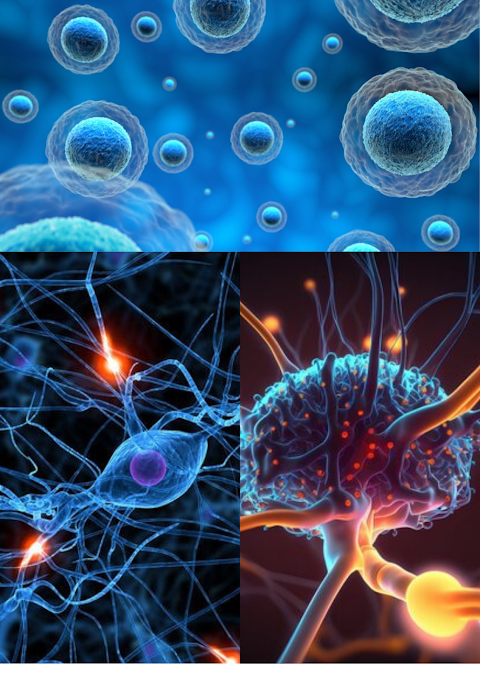Emerging Intracellular Electrical Phenomena: Implications for Paradigm Shifts in Biological Chemistry Research

Breaking news , latest news, current news and headlines, Health, Health care, Instant NEWS from all over the world , Investigation and analysis, Latest breaking news and information on top stories, politics, business, entertainment, weather and more, News Google, Magazine, Business news, International affairs, Health and health care, Science, Engineering and Technology, Opinion, Sports, Hollywood, Today's paper, Business, investing, technology, entrepreneurship, leadership and lifestyle,

To Read another article on Menstrual cramps and possible home cures to reduce the pain click here
Mensuration is a natural phenomena and every women of fertile age group goes through this process. During menstruation, the uterine lining sheds and turns into blood. This blood leaves the body through the vagina. It also goes by the name "period." Periods often last three to seven days. A menstrual person bleeds from the vagina during this time. Other symptoms, such cramps, could also be present. Having a period indicates that a person is not pregnant because menstruation stops when a woman is pregnant. It also signals the start of a fresh menstrual cycle. From their teen years until menopause, when periods stop, this reproductive cycle affects the majority of females.
In connection to the menstrual cycle, menstrual health is a state of complete physical, mental, and social well-being and mearly the absence of illness or infirmity. In order to achieve menstrual health, all individuals who experience a monthly cycle throughout their lives must be able to:
I) Have access to timely, accurate information regarding the menstrual cycle, menstruation, life-course changes, and associated self-care and hygiene habits.
Ii) Take good care of their bodies during their periods to support their preferences, hygiene, comfort, privacy, and safety. It also entails having supportive facilities and services, such as water, sanitation, and hygiene services, for washing one's body and hands, changing one's menstrual supplies, and cleaning and/or discarding used materials, in addition to having access to and using efficient and reasonably priced menstrual products.
III) Have prompt access to diagnosis, treatment, and care for discomforts and disorders associated with the menstrual cycle, including appropriate health services and resources, pain management, and self-care techniques.
IV) Have access to the information and assistance they need to confidently take care of their bodies and make well-informed decisions about self-care throughout their menstrual cycle, in a positive and respectful setting that is free of stigma and psychological distress.
V) Choose whether to participate and how to do so in all areas of life, including the civic, cultural, economic, social, and political, throughout all phases of the menstrual cycle, without experiencing any menstrual-related exclusion, limitation, discrimination, coercion, or violence.
Here's the WHO's statement on menstrual health and rights:-
The Millennium Declaration and the International Conference on Population and Development both omitted Menstrual Health from their agendas. Neither the aims for Sustainable Development Goals 3 (health), 5 (gender equality), or 6 (climate change) clearly declare it (water and sanitation). However, grassroots workers and activists from the global South have brought it up on the agendas of global health, education, human rights, and gender equality/equity, bringing attention to reports of women's and girls' experiences of shame and embarrassment and the obstacles they face in managing their periods because they lack the means to do so. This has an impact on their life opportunities, including their rights to education, work, water and sanitation, non-discrimination, and non-violence.
WHO applauds the grassroots workers and activists who have tenaciously promoted menstruation health, particularly those from the global South, and welcomes the inclusion of menstrual health on the agenda of the Human Rights Council.
The WHO recommends three steps. As a health issue having physical, psychological, and social elements that needs to be handled from before menarche to after menopause, menstruation should first be acknowledged and framed as such, rather than as a hygiene concern. Second, it is important to understand that menstrual health includes having access to information and education about it, the menstrual products they require, water, sanitation, and disposal facilities, competent and compassionate care when necessary, living, studying, and working in an environment where menstruation is not seen as something to be ashamed of, and being able to fully participate in social and professional activities. Thirdly, to guarantee that these actions are accounted for in the pertinent sectoral work plans and budgets and that their effectiveness is assessed.
Menstrual health is now a major issue thanks in large part to the efforts of activists, notably young people, and nongovernmental groups. Governments are acting in an increasing number of countries. Taxes on sanitary items have been eliminated in some jurisdictions. Others have concentrated on the difficulties teenagers who are in school have finding menstruation supplies. Others have implemented plans to supply menstrual products to groups of people who are facing challenges, such as homeless people or those who are incarcerated. Finally, a small number of nations have implemented rules and procedures governing medical leave when a person exhibits pain, discomfort, and other menstrual-related symptoms and indicators.
Governments may and should do more than just increase access to menstruation products, but these are helpful measures. They ought to make public institutions including workplaces, schools, and workplaces conducive to managing menstruation with comfort and dignity. They should normalize menstruation and reduce the taboo surrounding it, but that is more essential. Finally, governments should consider menstruation as part of a broader Sexual and Reproductive Health response for persons who are displaced due to conflict or natural disasters in light of what is occurring in Ethiopia, Ukraine, and other places.
Comments
Post a Comment